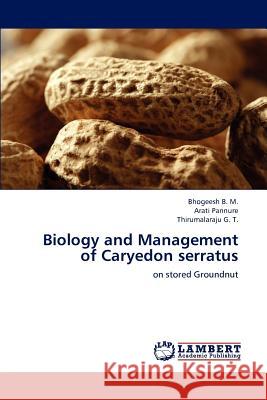Biology and Management of Caryedon Serratus » książka
Biology and Management of Caryedon Serratus
ISBN-13: 9783659308888 / Angielski / Miękka / 2012 / 104 str.
Groundnut, Arachis hypogaea L., is an important legume plant originated in the Southern Bolivia/North-west Argentina region in South America and is presently cultivated in 108 countries of the world. Production is constrained due to insect pests both in field and storage. More than 350 species of insects infest the crop in different parts of the world. Among the pests, Caryedon serratus (Oliver) is one of the major and important storage insect species causing around 20 per cent damage to groundnut and prevalent in Asia, Greece, France, Italy and the north and west coasts of Africa. The beetle damage not only reduces the weight and nutrient value but also adversely affects the quality of seed and oil. Infestation causes loss in dry mass of the kernels, increased levels of free fatty acids in the oil (thereby lowering the quality) and reduction in germination potential. The heat and moisture generated by large insect population within heaps or stacks of groundnut may also increase the risk of mould growth. Hence the investigations were carried out to study its biology and management on groundnut pods in storage.











